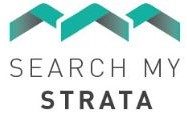Your Banker or Mortgage Broker
This is the tricky part of the process, getting money to buy your dream home
.
There are a few ways to source money:
– if you’re lucky enough you might have 100% of funds sitting in your bank account waiting for settlement day; or
– you can contact a mortgage broker; or
– you can contact your bank manager
The difference between a mortgage broker and a bank is:
– a mortgage broker is an independent source who has access to loans from numerous financial institutions and will find the right loan for you
– a bank manager only has access to loans offered by that particular financial institution

Ultimately, whichever avenue you choose, a financial institution will have to approve your loan, a mortgage broker cannot do this.
When you apply for your loan you will be required to provide evidence of your income and savings.
The financial institution will conduct a valuation of the property you are buying.
There are different types of loans:
– principal and interest
– interest only
The standard term of a home loan is 30 years.
Your loan can be set up:
– fixed rate of interest
– variable rate of interest
– or a combination of both
Once your loan is approved the financial institution will have you sign mortgage / loan documents.
In between the approval process and settlement your lender may request further information / documents from you.
Settlement of your purchase may be held up if you do not provide everything the bank requires.
Banks work on their time frames for processing documents / information (this is commonly known as the certification process).
Financial institutions generally only lend 80% of the purchase price. It is up to you to have the remaining 20% available for settlement.
When your mortgage broker or bank sets up your loan, it is recommended that you give the bank authority to use additional funds from your account. This eliminates the need to rush around closer to settlement getting bank cheques for your conveyancer / solicitor or depositing this money into their trust account.
This is only a general overview of how the finance component of your purchase works. Each finance application is treated individually and on its own merits.
Click here for Part 1 – The Real Estate Agent
Client here for Part 3 – Your Conveyancer or Solicitor
